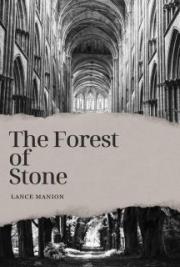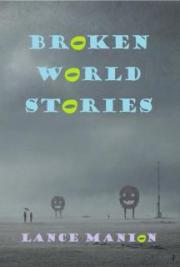For about two years, or maybe three, I had been kicking around a modified version of Go, the ancient Chinese abstract strategy board game, in my perforated 50-plus-year-old cranium. I envisioned this new two-player game (working name Enclosure) being played on a standard 8 x 8 checkerboard (or chessboard). American checkers (or English draughts) game pieces could be the tokens, but two sets (48 total; 24 discs for each opponent) would be required. Two colors of poker chips or pennies (or other copper coins) and silver coins could work as well. Lasso up a new-game-curious pal and you’re all good to go (a solitaire variant would require a distinctly split personality).
When my precocious, 11-year-old, middle-school-science-fair-award-winning nephew was dropped off by my sister on a mid-January Saturday afternoon (she and her husband wanted to go to an adults-only birthday party) at our east Charlotte (NC, USA) residence, I knew that I had someone who might be able help me initiate and develop the game in question, and possibly codify some rudimentary rules.
Soon the two of us were sitting across from each other at the large, oak, oval dining table, looking at a blank, nondescript, one-foot-square (30.5 x 30.5 cm), wooden checkerboard, preparing to play the first test game.
“Now, what’s the object again, Uncle Mike?” Bradley asked.
“The object is to fence off as much territory as possible. You can use the edge of the board as a wall. However, you have to totally box your enclosures; you must seal off all open diagonal-escape corners before the area is truly enclosed. Once properly enclosed, the surrounded squares are out of play for the remainder of the game and no tokens may be placed upon them by either player; so, in essence, the enclosed area becomes a no man’s land. You get one point for each of your enclosed squares.” [See graphic below.]

“Oh, this is kind of like Go!” my nephew suddenly blurted. He already knows about Go?
“It is in that it is about getting points for enclosing areas. However, there are some big differences, Bradley.”
“Such as …”
“Well, firstly, the squares are used and not the line intersections. Secondly, my pieces can be used in your enclosure walls, and vice versa. The player who puts the last piece down to solidify an enclosure gets the points for all of the surrounded squares.”
“Ok, I got it. Anything else?”
“Once a piece is placed on the board, it is never moved by either player ever again. Unlike checkers and chess, there is no repositioning, advancing, retreating, jumping or capturing. And unlike Go, removal of any token is forbidden. Once a token is placed, that’s where it will stay for the entirety of the match. Just imagine the discs being placed in quick-drying concrete.” Huh?!
“Quick-drying concrete? Holy Portland cement! That’s one bizarre analogy, Uncle Mike.” Wow! He knows the word ‘analogy’?
I chuckled for three seconds. “Bradley, the game ends when all of the tokens have been placed on the board. Or, when there are no more unenclosed squares available.”
“Might that be an unlikely scenario, Uncle Mike?” Scenario? He already knows that word, too?
“Maybe so,” I pondered. “Well, Bradley, you can go first. Or, do you want me to go first? Just like in Go, the player who goes second receives a half-point for the slight disadvantage.”
“Oh, so the game can never end in a draw,” Bradley quickly deduced. He’s one sharp kid. Will he become a scientist?
“Correct,” I confirmed.
“Where can I place my first token?” he asked.
“Anywhere,” I answered and then coughed (persistent cold). “However, the middle of the board is probably not advised; there’s too much span. I’d focus on a corner.”
Bradley then placed his first red round piece three spaces diagonally out from his right corner. “Ok, your turn, Uncle Mike.” I’ll let him get the first few points. No traps yet.
I then placed my first blue disc four diagonal spaces out from my right corner. Woah! Uncle Mike sure is being greedy.
Bradley then set his next token adjacent to the previously placed one. I did the same on my end. We alternated the building of our L-shaped walls. Bradley blocked-in his first to score four points.
“Nice!” I exclaimed. “You’re up 4-nil, Bradley.”
“You mean four to zero-point-five, Uncle Mike.” Oh, yes; I forgot the free half-point. At least I won’t be shut out.
I then placed the penultimate piece in my larger enclosure, anticipating the bagging of nine points after his move. Looks like this first-ever game will just be pure offense. Maybe it ends 17.5 to 16. / Uncle Mike is in for a big surprise.
But, Bradley then placed his next piece in the last open square against the far wall to whisk away my nine-spot. Wow! How about that …
“Why, you wily dog!” I playfully announced, feigning shock and disbelief at his sudden ruthlessness. “Thirteen to a measly half of a point. Nicely done, nephew.”
“I’m playing to win, Uncle Mike.” He most certainly is.
I would next overlook a five-point strand. Finally I scored with a three-pointer in my left corner. There would be no more scoring. Final score: 18 – 3.5 to my brainy nephew.
We would play a couple of more times. The duration between moves lengthened considerably and the games became progressively more defensive. The final score of the second game was 6 – 4.5 for Bradley. The last game was like a Mexican standoff: 3 – 2.5 to my keen nephew.
I congratulated Bradley on his best-of-five sweep as he exited with my sister at 6:36 PM.
The next Friday evening I picked up my never-awkward-like-dad 14-year-old son (typical every-other-weekend father custody) from his mother’s house in northeast Charlotte. After being immersed in an online commando-raid game for two days, my son (Agent 66) emerged from his bedroom on Sunday evening, enticed to the dining room by the aroma of hot just-cheese-and-nothing-else-on-thin-crust pizza (the only kind that he will eat as of late).
“Time for a game of Enclosure?” I asked him. Enclosure?
“How long will it take?” he countered. He looked none-too-enthused. What nonsense has dad thought up now?
“Oh, just ten minutes. It’s a quick game, son. Bradley killed me last week. Win and I’ll give you a fiver.” [five-dollar bill]
“Ok, sure,” he relented.
I explained the rules and basic strategy of the game to my growing-like-a-beanstalk Amerasian son. He elected to have me go first, as he didn’t want to give me the half-point.
Trench warfare soon ensued. We double-walled our minimal enclosures and then danced around the board, never committing to anything, just decoying when absolutely necessary. The final score: son 1.5 – 1 dad.
“Ok, son, that was downright awful. What can we do to prevent that from happening again?”
“Dad, I’d make it mandatory to connect to placed pieces. That way once someone gets the lead, they can’t let the air out of the ball.”
“Nice sports aphorism, son. And, a great improvement for the game. Shall diagonal connections be allowed?”
“I think that should be ok, dad. You just don’t want a bunch of pieces doing nothing but running out the clock.”
“Thanks for your sage suggestion, son. It’s going in the official rulebook tomorrow.” Official rulebook?
“Did you say that the name of the game is Enclosure, dad?”
“Yeah, what do you think, son?”
“How are you spelling it?”
“E-n-c-l-o-s-u-r-e, just like in the dictionary.”
“No. That’s no good, dad. There’s already a computer game called that as well as a board game and a couples’ game.”
“A couples’ game! How would you know about that, son?”
“Google, dad.”
“Well, how to spell it, son?”
“First, I would get rid of the sissy c and replace it with a hard Germanic k. Also, I would change the ure ending to the French eur. I think that you’ll then have a singular game-name, dad. You’ll have an Anglo-Franco-Teutonic one-off.” What?! Maybe he will become a linguist. Or, a marketing maven.
“An Anglo-Franco-Teutonic one-off? Son, I didn’t know that you were already studying French and German.”
“Just introductory classes this semester, dad.”
“I see. So, you think that we’ll be safe with your über-créatif [sic] spelling?”
“Yup.”
We would then play a game employing his connective rule. The modification seemed to make the game much more strategic, much more piece-placement-cautious, and much longer. Eighteen minutes later, he placed the last chip. He would win 7.5 to 5.
“Ten bucks, dad.”
Here’s a replay of the first 13 moves of a game between my son (blue) and I (red). He went first. Score after move: I’m up .5 to 0 because he went first.

My first turn. Score after move: I’m still up .5 to 0.

My son’s second turn. Score after move: I’m still up .5 to 0.

My second turn. Score after move: I’m still up .5 to 0.

My son’s third turn. Score after move: I’m still up .5 to 0.

My third turn. Score after move: I’m still up .5 to 0.

My son’s fourth turn. Score after move: I’m still up .5 to 0.

My fourth turn. I anticipate some points on my next turn. Score after move: I’m still up .5 to 0.

My son’s fifth turn. He goes ruthless on me and snatches the 4 points in the upper right corner. Score after move: He’s now up 4 to .5.

My fifth turn. Score after move: He’s still up 4 to .5.

My son’s sixth turn. He won’t fall for the bait; a clever player he already is. Score after move: He’s still up 4 to .5.

My sixth turn. I start off on another tangent. Score after move: He’s still up 4 to .5.

My son’s seventh turn. He’s smarter than I expected. Score after move: He’s still up 4 to .5.

I believe that he ended up winning this game, too. However, I think the score was fairly close. The old brain aint what it was. Ha-ha.
Anyway, thanks for your mind-time.
I hope that you enjoy playing this game.
May the mirth be with you.
- Mike





















